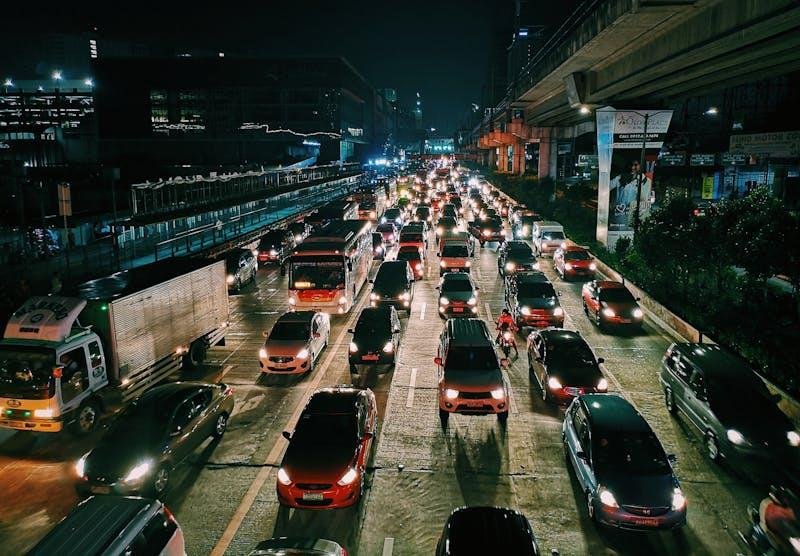Traffic cameras have become an ever-present part of modern urban infrastructure, capturing every vehicle’s move to help improve safety and manage traffic flows.
They’re mounted at intersections, along major highways, and in other high-traffic areas, ostensibly to ensure safe and organized traffic management worldwide.
But as ubiquitous as they are, do traffic cameras record all the time? Are they on 24/7, recording traffic movements into the dead of night and crack of dawn? These are questions that need answering, and we’ll do just that in our guide today! Keep reading to learn all about traffic cameras.
Table of Contents
Understanding Traffic Cameras
Before we find out if they record the streets constantly, we need to know a little more about traffic cameras. There are various types, each serving a different and important purpose. Let’s look at them below.
1. Red Light Cameras
These cameras are placed at intersections specifically to capture vehicles that run red lights. So, the next time you decide to make a dash for it, know that there’s one or maybe several red light cameras to shoot you from every angle.
2. Speed Cameras
These detect and record the speed of vehicles, especially in areas that have designated speed limits.
3. Surveillance Cameras
These cameras are often part of a larger and more detailed security system. They monitor traffic flow and help manage congestion. They are often used to detect vehicles implicated in crimes and are very effective in keeping the streets safe.
However, surveillance cameras, among other types, are controversial. Many areas and cities propose banning traffic cameras, as they are still illegal to install.
4. Automatic Number Plate Recognition Cameras (ANPR)
These cameras specifically capture license plate information for various uses, such as toll collection and law enforcement.
How Traffic Cameras Operate
Now, let’s understand how traffic cameras operate.
Sensors and Triggers
Some common types of sensors and triggers used in traffic cameras are,
- Inductive Loop Sensors: These are fixed on the road surface and detect changes in the electromagnetic field caused by vehicles. As vehicles go over the loop, the camera captures photos or videos.
- Radar Detectors: Radar detectors emit radio waves that bounce off moving vehicles. They’re often used in speed cameras and use the Doppler shift method. If the car exceeds the limit, the radar triggers the camera to record the violation.
- Infrared Sensors: These detect heat released by vehicles. They are very useful in low-light conditions and at nighttime, triggering cameras when vehicles pass through intersections or specific zones.
- Pressure Sensors: Installed beneath road surfaces, pressure sensors detect the weight and pressure of a vehicle passing over them, generating data to activate a traffic camera. They are useful for detecting heavy vehicles that are dependent on different traffic regulations.
Photographic Evidence
Traffic cameras obviously use photographic evidence to generate and support their data.
- High-Resolution Images: Traffic cameras are equipped with high-resolution cameras that capture clear images of vehicles, license plates, and drivers. They have advanced zoom capabilities and work effectively in low light and nighttime conditions.
- Video Recording: Some traffic cameras can also record videos. This is effective for capturing the real-time context of a traffic violation, like running red lights at stops or exceeding speed limits.
The Recording Mechanism of Traffic Cameras
Traffic cameras have different recording mechanisms, including continuous and event-triggered recordings. Let’s explore the different types and how the data is stored and managed to monitor traffic laws and regulations.
This section will eventually provide the long-awaited answer to our question of the hour: Do traffic cameras record all the time?
Continuous Recording
While most traffic cameras are not equipped for continuous recording, there are those that continuously record everything going on in the streets. This obviously depends on the type of cameras.
Surveillance cameras and dash cams are the only types of traffic cameras that continuously record, the former recording long-form and real-time footage to help with traffic or law enforcement incidents.
The latter, being inside the vehicle, recording all the time, giving valuable evidence during accidents, traffic breaches, or other on-road incidents. They also help drivers protect themselves from false claims and legal problems.
There may be exceptions, such as problems in the camera mechanisms or when the camera is damaged or shut off by authorities. Dash cams will shut off when the vehicles are at rest or not driven.
Event-Trigger Recording
These are traffic cameras that record when triggered by an event. For instance, a red light camera captures 10-12 seconds of footage, the amount of time it takes for someone to violate a red light. Speeding cameras will also record a similar time, around 10-12 seconds.
Do Traffic Cameras Record All The Time?
So, the answer to the question, do traffic cameras record all the time, is no. While certain traffic cameras do record for a long time, they don’t record and capture without interruptions.
How Long Do Traffic Cameras Store Footage?
Traffic cameras store recorded footage, and the storage capacity of the camera will depend primarily on this.
The time the footage is stored will also depend on the camera’s model. Some cameras may store footage for a few days, while others might save footage for several weeks or months.
Challenges of Traffic Cameras Not Recording All The Time
Since traffic cameras don’t record continuously, a few challenges may arise.
- Missed incidents such as unregistered violations.
- Sensor problems that fail to detect and need maintenance.
- Limited evidence, such as incomplete footage, causes legal challenges.
- Risking data integrity and security.
Conclusion
We hope you enjoyed learning about traffic cameras’ recording capability. While traffic cameras don’t record all the time, they certainly do provide valuable data and information for us and our cities.
Whether or not your local traffic camera records continuously, be assured that it’s serving its great purpose of keeping you, your vehicles, and your streets safe as ever!
